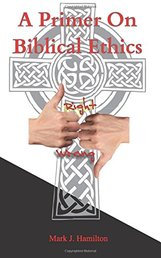
As with his holy conception and birth the creed’s statement of his suffering under Pontius Pilate is synecdoche. That is to say, it represents all his earthly sufferings that lead up to his death and that for which we may call him the “Man of Sorrows, acquainted with grief”. These include…
1. His being betrayed by Judas and forsaken of his disciples: Christ, in his humanity, had friends. Close friends at that. They were his confidants and the ones with whom he experienced camaraderie. We must not think that Christ had a stoic attitude towards his earthly associates. He loved them, laughed with them, and bonded with them as any mortal would. We likely have experienced a friend forsaking us or turning his back on us. Christ experienced this on a grand scale.
2. He was scorned & rejected by the world: He came to his own, but his own did not receive him. We often see Christ in conflict with the Religious leaders. We must not think that his rebukes were out of anger only. They were no doubt accompanied with tears. To be run out of towns and ridiculed by throngs would have no doubt multiplied his grief.
3. He was condemned by Pilate: To have a sentence passed against you is distressing. But it is different if you are innocent. Since Pilate knew that Christ was innocent (and even sought to persuade the audience and be something of an advocate for Christ’s release), it would have been even more troubling.
4. He was tormented by his persecutors: This should be obvious enough. Let us not forget though that Christ suffered numerous beatings, perhaps 4 altogether (one the hand of the Jews, one at the hand of Pilate, one at the hand of Herod, one at the hand of the crowds as he was led to Golgotha—it was their custom to “get their digs” as they were being led to the place of execution).
5. He conflicted with the terrors of death: Besides suffering the brutality of men, he experienced the mental anguish over his impending execution in the Garden of Gethsemane. This was of such an extreme degree that his pores began to seep blood (in other words, his capillaries were under such stress that they broke and released blood).




 RSS Feed
RSS Feed
